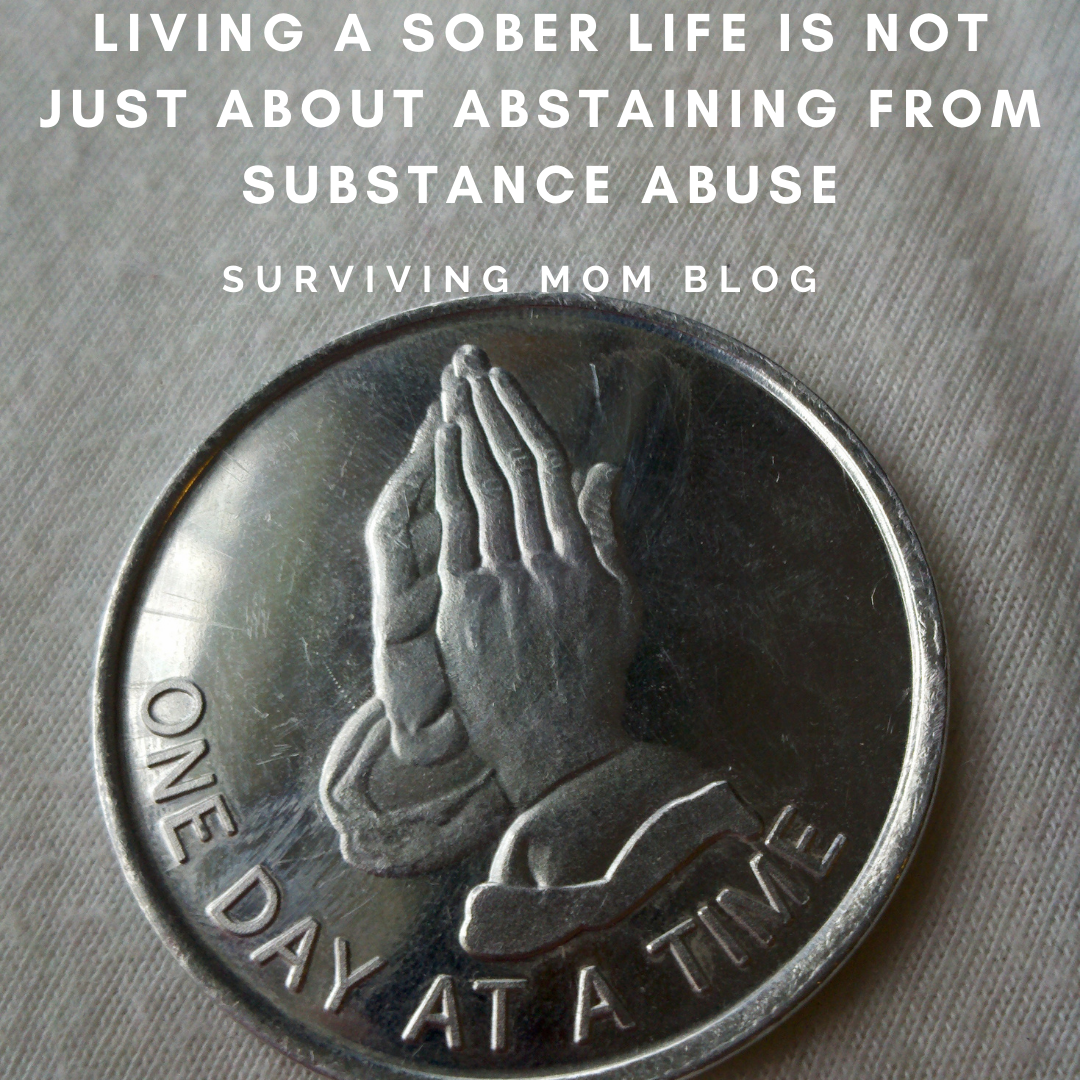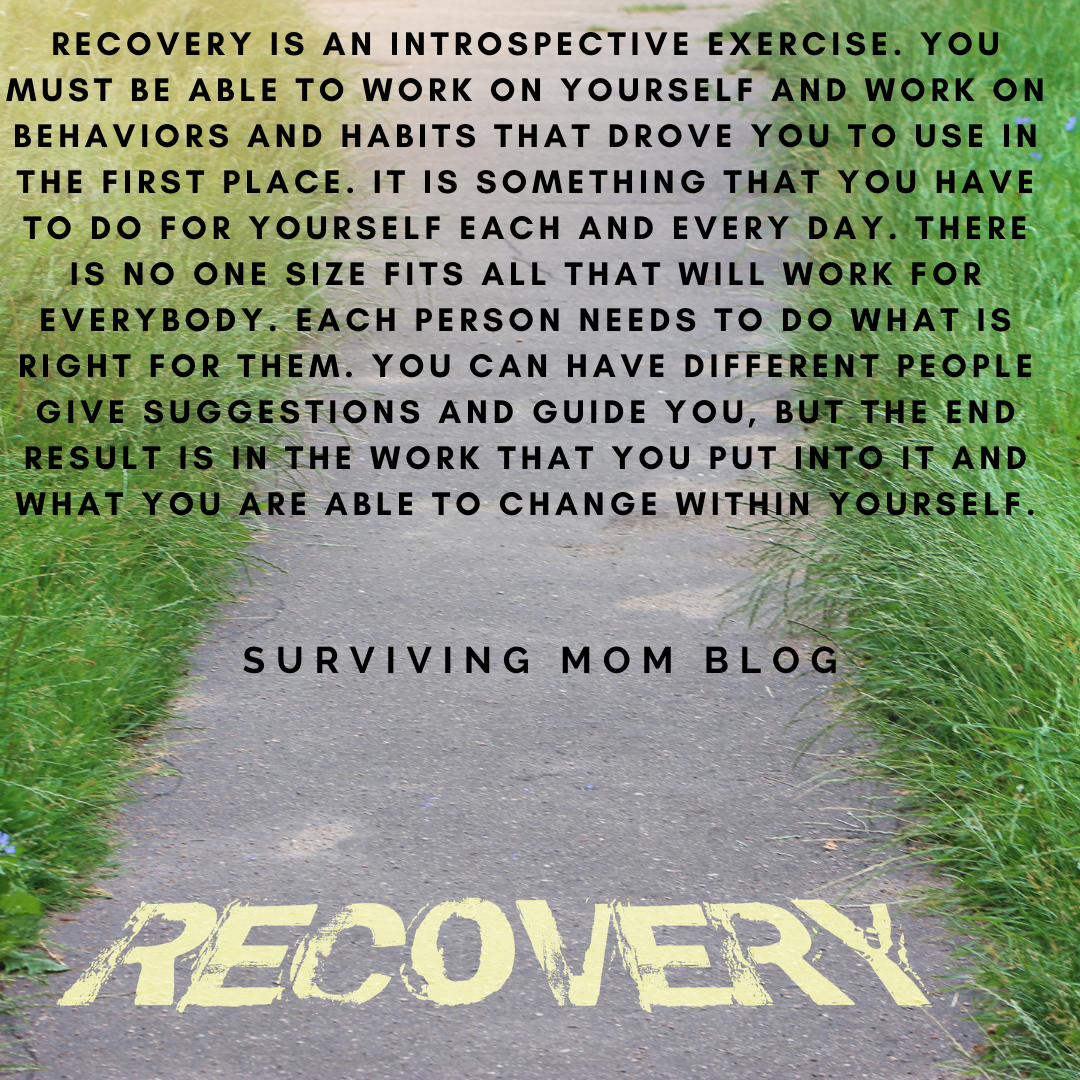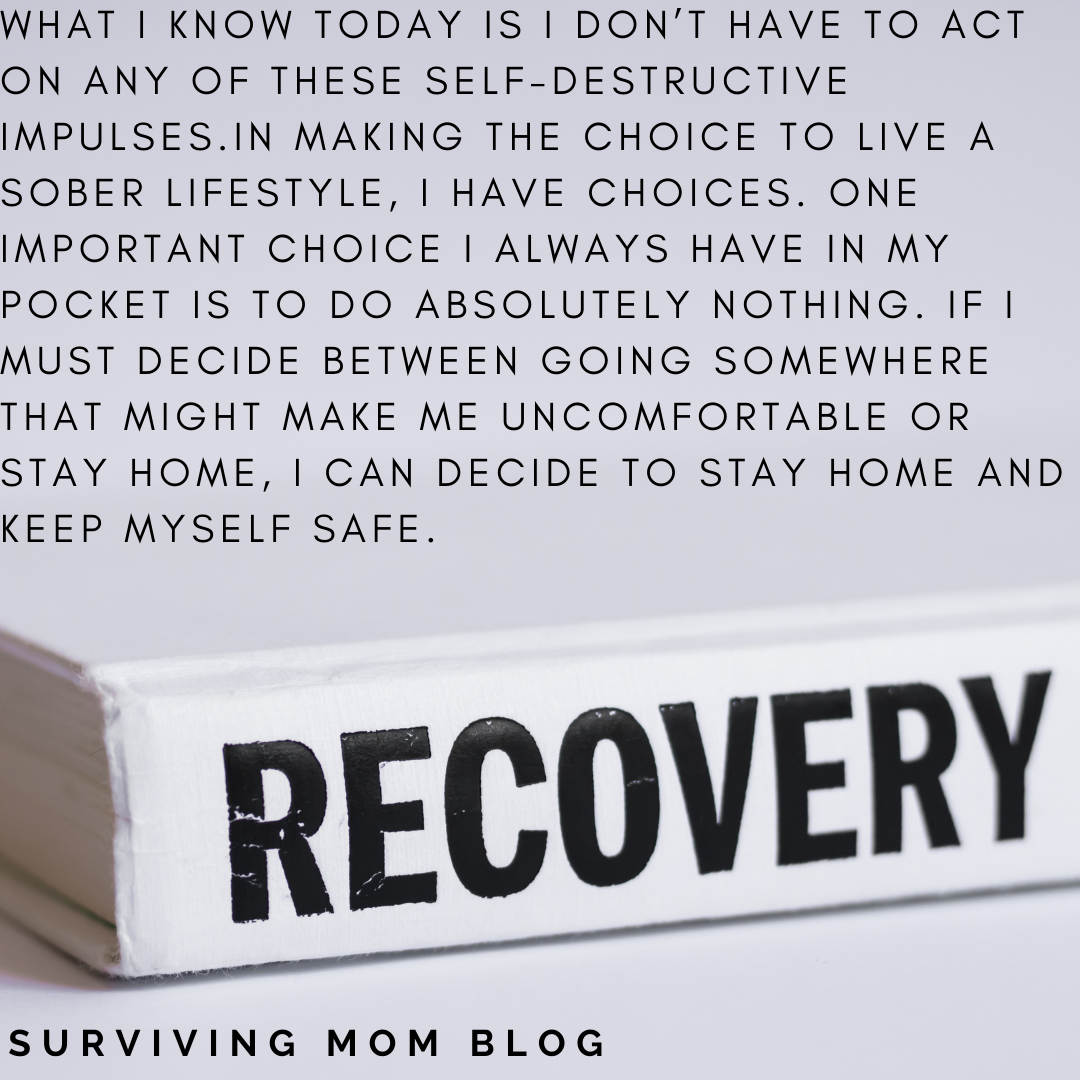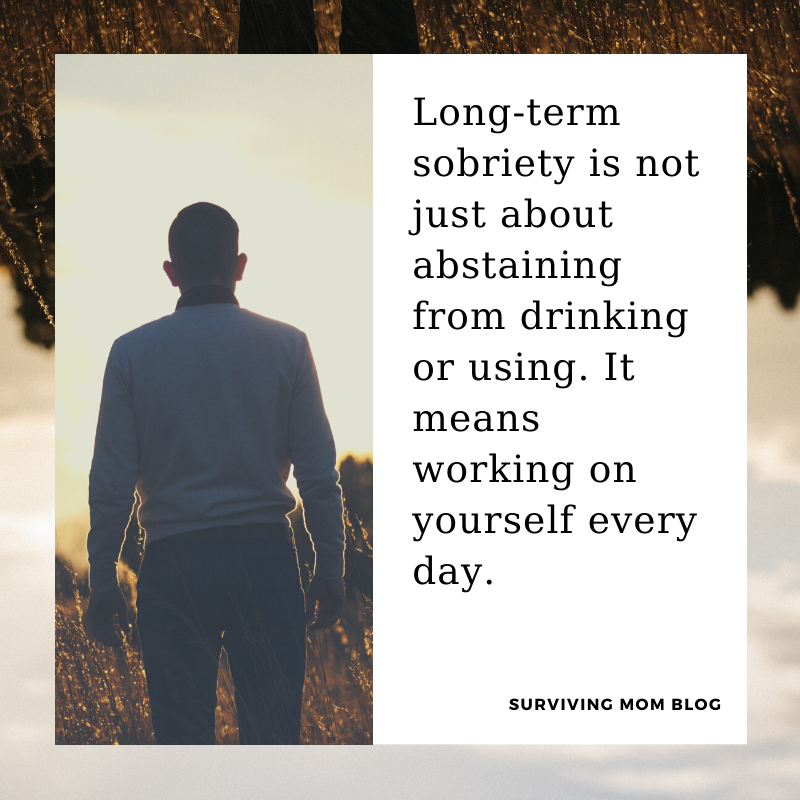
My husband, Matt, is an addict. His addiction and his recovery are both an important part of his journey, and they are a part of our journey as a couple. Matt has been sober for five years. I am grateful that he is clean and has stayed clean, but there is so much more to sobriety than not using. I assumed that once he was sober it would be smooth sailing.
THAT IS SIMPLY NOT THE TRUTH.
I asked my husband to share his struggle and perspective on living a sober life to provide insight for loved ones of addicts and to support others on their own sober journey.
Read his story below:
Recovering from an addiction is anything but easy. You feel alone, lost, afraid, and have no identity other than what you used to be in active addiction. A lot of your feelings are negative, and your coping strategy of using is gone. As a result, your normal way of dealing with negative emotions is no longer available. Every 24-hour period an addict is drug and/or alcohol-free is a gift. No matter what else happened that day, you can be proud of yourself that you didn’t use. It is a beginning of a long road, but it is a road worth traveling. Being in recovery and living a sober life will help reshape your life into one of confidence, health, and healing. However, staying sober is only half the battle.
LIVING A SOBER LIFE IS NOT JUST ABOUT ABSTAINING FROM SUBSTANCES
It is a misnomer that recovery is just about abstaining from the substances you used in active addiction. That is just not true. It is also recovering from behaviors and facing feeling that you used addiction to mask. In addition, there are new and emerging feelings of shame, regret, sadness, and anger that will surface, all of which were previously dealt with by burying them under the cover of drugs, pills, alcohol, etc. You need to evaluate which people will help you to live a sober life and which will not. You also need to learn how to communicate to others that you are in recovery to avoid uncomfortable situations that might put you in a position to relapse.

The first part of living a sober life in recovery is to find a 12-step program and meetings that you enjoy. There are so many different types of meetings out there that it can be extremely overwhelming. In the beginning you need to attend as many meetings as you can. Therefore, it is a good idea to bounce around until you find one that helps you gain insight into yourself through what others share. When I was first starting out, I was told to just listen to different people share at meetings and see what resonated with me.
When you find a meeting you like, the next thing you must do is find a sponsor. At the beginning, finding a sponsor is the most important tool in living a sober life. It is impossible to stay sober on your own during the first few years of recovery. You need that guidance and support during those tough times. A sponsor will help you work the program in a meaningful and insightful way. They have been through the 12 steps before and are a tool in helping you stay sober.
With that said, recovery is an introspective exercise.
You must be able to work on yourself and work on behaviors and habits that drove you to use in the first place. It is something that you have to do for yourself each and every day. There is no one-size-fits-all method that will work for everybody. Each person needs to do what is right for them. You can have different people give suggestions and guide you, but the end result is in the work that you put into it and what you are able to change within yourself. If you put the work in every day to work on yourself and stay sober, you will be able to look at yourself in the mirror at the end of each day and say, “I stayed sober today; I am proud of myself.”
for the 12 steps to work you must leave your ego at the door
To be honest, I had tried 12-step programs several times prior to becoming sober. Each time I would attend several meetings and then stop going. It was primarily my self-centeredness, my ego. By that, I mean selfishness, resentments, fear, the things that engulf people with drinking and addiction problems. The steps are designed to look at the world from a different point of view. There has got to be that internal surrender for sobriety to happen. That scared me, and I wanted no part of it. I didn’t have any intention of looking internally to see the root of where my addiction came from, which are my insecurities and faults.
The shame I felt was more powerful than my will to stay sober, so each time I would leave the meetings and continue my destructive behavior.
As you might have read in my initial post about how I became sober, I finally hit rock bottom and knew I had to change or else I would lose what was most important to me. I want to an outpatient rehab center 3 evenings a week for 4 months. It was a solid foundation for me to begin my journey in sobriety, and I learned a lot about myself during this program. I found a meeting that I enjoyed attending, and found a sponsor that I was able to connect with. I started working through the twelve steps with him.
The twelve steps are about spirituality. They’re not about sobriety. They’re about growing along spiritual lines, and sobriety is a by-product of that. Living by spiritual principles does not mean you have to be religious or have any religious affiliation. It means that you believe in something greater than yourself. The steps will help you look inside at yourself and the things you have done wrong that led you on that dark path of addiction. It helps flesh those things out so you can see what needs to change to be able to live a sober life.
THE PROGRAM WILL GIVE YOU TOOLS TO HELP LIVE A SOBER LIFE

After a while, I learned some helpful tools. For example, I learned how to breathe. I also learned how to check in with my body to see how I was reacting to different situations: Is my heart racing? Are my palms sweaty? I learned that I could remove myself from any situation that could affect my sobriety. My wife has been my rock throughout my sobriety journey. I know that it would have been an incredibly difficult journey for me to stay sober without her in my corner.
As time wore on, my frequency at meetings as well as my meetings with my sponsor became less and less frequent. My sponsor enabled me to blame others for my actions rather than help me hold myself accountable. I had to sever ties with him, and over the next several years I tried working with two other sponsors that I did not have success with. My meeting frequency also went from 3 times a week to once a week, then to once every two weeks. Now, I’m lucky if I go to a meeting once every 2-3 months. I stay sober by doing the inner work. I try to understand my habits and behaviors in different situations that cause me to react inappropriately.
What I have today is a better awareness of the things I’m thinking and feeling. I’m aware of when my mind sends me a signal like, “The situation I’m in is not good for me, and it would be much easier to check out by having a quick drink or taking something I shouldn’t. Or even better ten drinks in a row.” I have a better sense of how unbearable I found most situations. Any time I was going through something that would make me the slightest bit uncomfortable, I wanted to use. These behaviors were well worn grooves in my psyche, developed over years of repetition.
What I know today is I don’t have to act on any of these self-destructive impulses.
I don’t have to drink or take drugs. In making the choice to live a sober lifestyle, I have choices. One important choice I always have in my pocket is to do absolutely nothing. If I must decide between going somewhere that might make me uncomfortable or stay home, I can decide to stay home and keep myself safe.
Breathing and meditation taught me how to sit with a feeling for a period of time, dipping my toe into uncomfortable emotional territory. I know that if a feeling becomes unbearable, it won’t stay that way. No matter how angry or sad, anxious, or happy I become, time will pass. Either I won’t feel that way or the feeling will become different, something more thoughtful and less desperate. Being open to the fact that things change helps me make it through those tough moments. Then, before I know it, it’s nighttime and I can get into bed knowing I’ve made it through another day sober. For me, that is the best part. In the morning I will wake up to possibility instead of a massive hangover.
you will need to work on yourself every day
Here’s the thing though; I make mistakes all the time. Tons of them. Sometimes tons in the same day. I will react to different situations poorly. There are days where I react out of spite and anger, doing things I will regret over time. Other days I will become distant and not want to talk to anyone. I will take things and people that I have in my life for granted, and not act in a way that I should in a given situation. There are many days where I still lie about things because I am afraid of sitting with those negative feelings and emotions. I am afraid to have conversations that deal with feelings because I still have the want and need to bury them so that it will not affect me.

These are all things that I struggle with and continue to work on to this day.
The one thing that has never wavered is that I am determined to remain sober. When I wake up every day, I make that choice. I take life in 24 hour periods. I never try to look too far ahead because that can be very scary.
During my years of living a sober life, I have been able to live life in a healthy and more manageable way. I have found a career that I love and am proud of the accomplishments I have made every day. I have been able to have a closer relationship with my wife, which helps me to stay balanced and even keel in this topsy turvy world that we live in.
It is very rare when I feel the need to use. There are times when I get that itch in the back of my brain. I now have the tools to handle those temptations in a healthier way. Life is never easy, and there are times when it is a struggle to get through some days. During those times, I dive deep into doing what I love: spending time with my family, watching sports, listening to music, running, and working out. I have learned how to cope with my disease rather than succumbing to it. I was not able to do so during those dark periods in my life.
Long-term sobriety means working on yourself every day.
A lot can and will happen to you that has the potential to derail you. Addiction is a chronic disease, not a personal failure. There is a human face behind every example, and there is real hope that addiction recovery can change your life. No matter how many times you need to try, please know there is always someone out there that will listen. There is someone out there that can help you get through those difficult times and help you get on the path to living a sober life.
Disclaimer
This post may contain affiliate links. If you purchase a product via my link I may receive a small commission at no additional cost to you. Please visit our disclaimers here

Naomi P Lane says:
Wow, even though I have a number of close friends and relatives who are staying sober, this article really impressed upon me how much work it is to just get through each day. The two addicts closest to me both found other passions to fill their time. One keeps very busy with hiking and golf and the other is a passionate writer and gardener. Watching them, it seems important to find something to do to occupy your mind and hands. It seems like having too much “down time” is hazardous for them.
Randi says:
Yes, I think the biggest takeaway from his recovery journey is the amount of work it takes each and every day. Sobriety is so much more than not using. It is about actively looking at what caused the person to use in the first place. If that inner work isn’t done, it often leads to relapse. It’s important to focus on other things besides using (which is why finding a passion is a great thing), but at the same time, you need to devote time to working on yourself. I’m glad that the people that you know who are in recovery have found tools to stay sober!
Beryl Thomson says:
I need your strength I admire you for getting to your goal every day I am so ashamed of myself at times I even hate myself I have just had a glass of wine to deaden the pain in my heart I am still suffering a breakup (2 years in April 2022) Needless to say at 76 you are also financially strapped But I am going to try very very hard Having no transport due to failing eyesight (have given my car to my daughter who is my designated driver) I identify with your wife s story of her childhood and now I know I am one of them I wish I had her in my life as you do
Beryl Thomson Port Elizabeth South Africa
Happy and Blessed Christmas 2021
Randi says:
Hi Beryl – I’m sorry that you are going through such a difficult time. It might be a good idea to speak to a mental health professional to help you process the feelings that you are having. There is no shame in asking someone for help. I wasn’t able to see that in my darkest days and I needed that push to get the help I needed. I’m sorry it has taken this long to respond to you, but I hope you are in a better place now than you were a few months ago. Wishing you all the best – Matt.